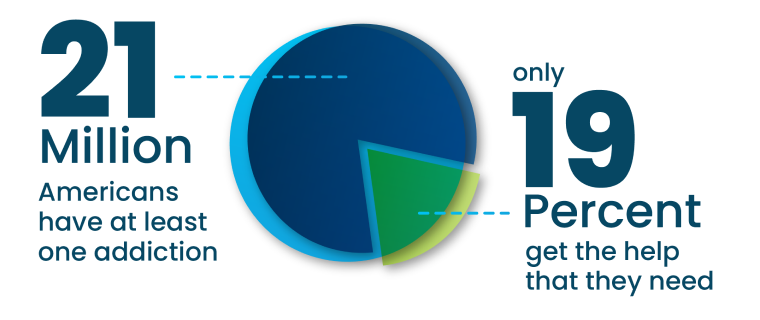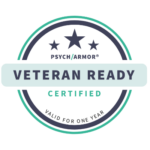Methamphetamine Addiction: Treatment, Symptoms, and Causes
Methamphetamine, also known as meth, chalk, speed, and crystal meth, is a powerful and highly addictive stimulant drug.
While meth is chemically identical to amphetamines, it has far more powerful effects and has a far greater impact on the human body and brain than amphetamine. When used, meth produces a powerful high that includes euphoria, extreme energy, and feelings of pleasure. These pleasurable effects are what make meth so addicting since they can cause people to return to the substance over and over, leading to destructive meth addiction.
Methamphetamine use disorder can have a wide range of devastating consequences, including fatal overdose, and must be treated by an addiction specialist. Meth may be used in various ways, including snorting, swallowing, and injecting, all of which can lead to health problems.
Treatment Services
The thought of overcoming a methamphetamine addiction may be overwhelming, but know that there is hope and that complete recovery is a reality. Individuals may recover from drug addiction and live healthy, balanced lives with the right treatment plan.
If you or someone you care about is addicted to meth, there are various evidence-based treatment options available for methamphetamine use disorder. Recovery is often not a straight line, and it is important to try different treatments until you discover one that works.
Medical treatment of meth addiction usually consists of the following services:
- Initial assessment
- Developing a customized treatment plan
- Medical detox
- Individual therapy sessions, group sessions, or family therapy sessions
- Outpatient treatment program
- Support groups
- Aftercare program
- Inpatient treatment program

Symptoms of Meth Addiction
The signs and symptoms of meth addiction differ from person to person and depend on various factors, such as the level of an individual’s meth use, the method of usage, and others. Following are all common physical, psychological, and behavioral/social symptoms that show that a person has developed a dangerous addiction to meth.
Physical symptoms of meth addiction include:
- Flushed skin
- Increased heart rate
- Itchiness
- Dilated pupils
- Rapid weight loss
- Uncontrollable and erratic twitching
- Increased heart rate and body temperature
- Damage to the mouth, teeth, and gums
- Raised body temperature
- Decreased appetite
- Chest pain
- Drug cravings
- Flushed skin
Psychological symptoms of meth addiction include:
- Impaired judgment
- Exacerbation of any existing mental health conditions
- Agitation and aggression
- Insomnia
- Mood swings
- Memory loss
- Paranoia and hallucinations
- Depression
- Inability to concentrate or focus
- Feelings of guilt, shame, and hopelessness
- Confusion
- Inability to make effective decisions
- Intense mood swings
- Anxiety
When to Seek Treatment…
If you are wondering if you or a loved one has a meth use disorder, the following list highlights various criteria that treatment experts may use to evaluate people who are addicted to meth. Though medical professionals can more definitively diagnose substance use disorders, the following diagnostic criteria might help you understand the signs that may indicate the need for professional treatment for addiction:
- Taking meth in larger amounts or over a longer period of time than was intended
- Experiencing uncomfortable withdrawal symptoms when use is cut down or stopped
- Devoting a lot of time to obtaining and using meth
- Needing more meth to experience the same effects (tolerance)
- Using meth in risky situations (while driving, for example)
- Giving up or avoiding participation in important social events or recreational activities to use meth
- Continuing to use meth despite repeated interpersonal or social problems caused or worsened by the use of meth
- Failing to fulfill responsibilities at school, work, or home due to meth use
- Having strong cravings for meth
- Experiencing a constant desire to stop or control meth use or trying and failing in attempts to do so
If you notice the above signs in yourself, don’t wait until you hit rock bottom before you seek professional help at The Haven Detox. Contact us at (561) 328-8627.
If a Loved One Needs Help…
The challenge with addiction is that it affects more than just the addict. Family members and friends may suffer from the addict’s behavior, financial problems, legal issues, and the daily struggle of supporting a loved one. Here are a few useful tips to help you support an addicted loved one.
- Educate yourself on addiction
- Express hope that recovery is possible
- Maintain your commitment to loving and supporting them
- Be honest when expressing your concerns
- Maintain healthy boundaries and stick to them
- Avoid blame game
- Research treatment facilities and call rehabs to discuss the most effective treatment options
- Offer to accompany your loved one to the doctor
- Offer additional support after they complete treatment
If your loved one is facing severe signs of methamphetamine addiction, you should seek immediate medical attention and call The Haven Detox at (561) 328-8627.

Causes of Meth Addiction
Meth addiction is a severe medical condition that can lead to various physical and mental health issues. Some of the most common causes of meth addiction are as follows:
Because of their biological and genetic make-up, some people are more vulnerable to meth addiction than others. People with specific genes, for example, may be prone to addiction, and certain brain chemistry may lead to addictive behavior.
People who come from a family of addicts, for example, are more prone to develop an addictive habit. Furthermore, those who suffer from mental illnesses such as depression or anxiety are more inclined to use drugs to self-medicate.
In addition, those with low dopamine levels in their brains are more prone to get hooked on drugs. As a result, while anybody can get addicted to meth, certain people are at a higher risk of doing so owing to genetics or brain chemistry.
Meth addiction can also be influenced by environmental factors. For example, those people who grow up in abusive or chaotic households are more prone to develop a habit.
Furthermore, persons who have easy access to drugs or who socialize with drug users are more likely to get hooked. As a result, while biology and genetics may predispose certain people to addiction, the environment also plays a big role.
Low self-esteem is a psychological factor that might contribute to methamphetamine addiction. Individuals who have bad views about themselves are more likely to turn to drugs to cope with their unpleasant sentiments. Impulsivity is another psychological aspect that might contribute to meth addiction. Individuals who struggle with controlling their impulses are more likely to resist the desire to take drugs, even when they know it is not in their best interests.
Finally, a lack of coping skills might lead to meth addiction. Individuals who do not have appropriate coping mechanisms are more prone to use drugs to cope with stress and other challenging life circumstances.
The higher availability of the drug is one of the major contributing causes of meth addiction. Meth has grown more accessible and affordable in recent years.
This increased availability has resulted in a substantial increase in meth usage, as well as a corresponding increase in meth addiction.
Underlying mental health issues are another important factor that contributes to meth addiction. Many persons who are addicted to meth also have mental illnesses such as depression, anxiety, or PTSD.
To deal with the symptoms of these mental problems, people may turn to drugs like meth.

Effects of Meth Addiction
Meth has very severe effects on the brain. One of the most dangerous risks of meth use is an increased risk of stroke, a disorder in which blood supply to a part of the brain is interrupted, resulting in tissue death and potentially irreversible brain damage. Memory loss, partial or total paralysis, loss of speech, cognitive impairment, and even death might result from this.
Meth also has a substantial impact on brain neurotransmitters such as dopamine and serotonin. The “high” feelings of meth are caused by an excessive release of these substances, which rapidly depletes the brain’s supply.
In the long-term, this overstimulation of dopamine- and serotonin-releasing brain cells can lead to their death, resulting in a drop in dopamine levels and problems experiencing pleasure (which can lead to depression). This is yet another type of brain damage that can occur as a result of meth usage.
Meth use effects on brain cells can lead to the development of psychosis, with symptoms similar to schizophrenia, such as hallucinations and paranoia.
Meth’s stimulant effects can significantly increase users’ heart rates, and long-term and chronic meth usage can cause heart palpitations. This frightening symptom is generally felt as a forceful hammering in the chest or neck.
Meth usage can also result in the development of an arrhythmia, also known as an irregular heartbeat. These can seem like a “skipped” heartbeat, and if severe enough, they can cause lightheadedness, collapse, or even cardiac arrest.
Meth use can also increase blood pressure, and chronic high blood pressure can damage arteries over time, leading them to stiffen and impede blood flow to various vital organs.
Meth usage has a number of negative consequences on the lungs and respiratory system. Methamphetamine’s stimulant effects include rapid breathing, which can cause lightheadedness and fainting.
Smoking meth can lead to coughing up blood due to bleeding in the alveoli, the area of the lungs that is responsible for gas exchange with the blood supply. Meth use is also linked to pulmonary hypertension and pulmonary edema.
Snorting meth can result in violent coughing and respiratory injuries, such as a collapsed lung (pneumothorax) and the expulsion of air into the body from the lungs (pneumomediastinum).
When you inhale meth, its impurities can accumulate in the lungs, resulting in granulomas and interstitial lung disease.
Meth use can cause obsessive skin picking, which is commonly caused by psychosis, delusions, and the feeling that bugs are crawling beneath their skin.
Scratching the arms and face repeatedly can result in the formation of multiple open sores, which can eventually become infected.
Rapid aging can also be caused by severe acne, a loss of skin elasticity, and the development of a “leathery” skin texture. All of these factors can contribute to meth users having a generally unhealthy-appearing complexion.
Methamphetamine users may inject the drug using needles at times, and they may also share needles with other users owing to the cost and difficulty of getting fresh needles each time they use meth.
The practice of needle sharing has the potential to spread blood-borne infections from one user to the next, with hepatitis B and C being two of the most often transmitted diseases.
Hepatitis, or liver inflammation, can cause gradual damage over time, resulting in jaundice, cirrhosis, bleeding, and nervous system damage.
Blood artery constriction caused by methamphetamine usage can cut off blood supply to the intestine, potentially resulting in bowel tissue death. This can result in intestinal wall rupture and peritonitis, a potentially lethal infection of the abdominal cavity that can develop into septic shock.
Meth use can also have an effect on the functioning of bodily systems. Methamphetamine usage has the potential to weaken the immune system and diminish the body’s ability to resist and fight disease-causing bacteria, viruses, and fungi. Meth users may become chronically prone to a variety of infectious diseases as a result of this.
Needle sharing among meth addicts can potentially spread HIV, the virus that causes AIDS. HIV damages immune system cells over time, making meth users considerably more vulnerable to getting a variety of diseases.
Get Help
If you’re suffering from Methamphetamine addiction, getting help as early as possible is essential. Methamphetamine addiction is a severe illness that can lead to many problems. Getting help as early as possible can significantly improve your chances of recovery. Call us to get started with treatment.
Our resources are available to help you overcome your addiction with evidence-based therapies and innovative treatments proven by medical science to effectively manage your addiction. Our admissions counselors can help you learn more about the disease and how to keep it out of your life. Contact us confidentially today.

Treatment of Meth Addiction
The initial stage of rehabilitation is an assessment by skilled medical staff. If the patient is still severely under the influence of meth, they will undergo a detox process. Those who complete the process may consider it a personal milestone. After some time, a patient’s body will have stabilized, and they will be able to progress to the next stage of the recovery process.
Medical Detox
Detoxification is a process by which the body cleanses itself of toxic chemicals. The duration of methamphetamine detox is generally determined by the distinctive half-life attributes of the substance. After five half-lives, drugs are eliminated from the body.
Some of the most common withdrawal symptoms include anxiety, depression, fatigue, and increased appetite. All of these symptoms indicate that the body is detoxing from methamphetamine, flushing out the toxins, and returning to health.
Some meth users go through the detox process at home. It is not recommended to undergo detox at home if the home environment is a triggering space. It is not recommended to try home detox if you have a dual diagnosis or co-occurring mental illness.
Dehydration is a common side effect of withdrawal, which can be deadly. As a result, medically supervised detox can be an important part of a treatment plan. Meth detox centers and rehab facilities offer 24-hour medical care to people undergoing detoxification. Nurses and physicians on staff will use FDA-approved medications and ensure you are properly hydrated and nourished, allowing you to detox healthily and safely.


Inpatient Rehab
Some people transition from detox to inpatient meth treatment. Inpatient treatment centers offer organized programs during the day as well as residential amenities outside those hours. During their stay in an inpatient rehab program, patients are given support 24/7.
Programs are often offered in 30-, 60-, or 90-day intervals, depending on your unique needs. They combine individual counseling, group therapy, and case management. Alternative treatment modalities or holistic healing approaches are also available at treatment centers.
Inpatient meth treatment is a better option for people who believe they may require more help throughout the first few weeks and months of recovery. It is not the only method to stay drug-free, but it does provide additional guidance during those early foundational days.
Therapies
You will participate in a range of treatments, whether you choose inpatient or outpatient treatment, to help you get to the root cause of your meth addiction. Therapy might help you reorganize your thought patterns and improve your perceptions of yourself and your addiction. Therapy will also help you cure any underlying medical conditions or trauma that may be causing your addiction.
For the treatment of meth addiction, the following psychotherapy and behavioral therapies are used:
Cognitive-behavioral therapy will examine your current thought processes and their relationship to your addiction. It will help you learn coping skills to help you manage cravings and triggers when you re-enter society. You’ll be able to focus on solutions instead of issues.
DBT programs will teach you how to manage your emotions in difficult situations. DBT can be used to treat both addiction and underlying mental health conditions. The goal is to become more aware of your surroundings and to accept your current mental state. By altering your cognitive processes, you can make a big difference with use of your DBT skills.
While some people are committed to their recovery from the start, others may be hesitant to seek treatment because they do not believe their addiction is negatively impacting their life. Motivational interviewing helps these patients comprehend the need for meth addiction treatment and actively participate in their therapy. A counselor will ask about your goals and how meth usage is affecting your life, such as your job or family life.
When you begin treatment, an addiction specialist will help you decide which type of therapy is appropriate for you. To get to the core of your addiction and enhance your physical and mental health, you’ll most likely go through various types of treatment.
Break the Cycle of Addiction at The Haven Detox
Although meth addiction is difficult to overcome, it is possible with the help of mental health professionals.
The Haven Detox provides specialized care tailored to your specific needs. Our team of professional medical staff is ready to help you every step of your recovery, from detox through proper treatment and aftercare. We offer a safe place to our patients and provide them with the tools they need to live a life free of meth addiction.
Call us today at (561) 328-8627 to learn more about our meth addiction treatment center. We can answer your questions, discuss your meth addiction treatment options, and start your long-time recovery immediately.







